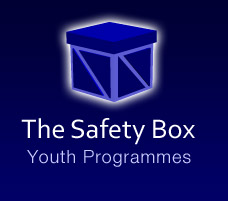The Safety Box ® and the theme for today's International Day of Education share one thing in common: we both care about unlocking potential. We see potential in all the youth we work with, and their ability to achieve in whatever they wish to. However, being able to achieve that means little if you don't know where to start or how to get yourself there.
Education is important for the simple reason that it gives you the knowledge, insight and resources to make your aspirations a reality. With education, you can not only access any career field in the world, but you can keep yourself and those around you safe. Education is not just academic. It is physical, emotional, mental, social. Knowledge is power for a reason, and we want to help provide that knowledge so that youth everywhere can thrive in life the way they're meant to.
Part of today’s theme given by the UN is recognising and strengthening education as a public endeavour and a common good. Education is considered a human right, as it should, but the accessibility of that human right will be different for each individual depending on economic standing, neurodiversity, language, culture, the area you live in, and many more factors. Many of our youth struggle to gain access to the level of education they deserve because of these factors. Neurodiversity can have a massive impact on the way a young person receives and retains information, but without the knowledge and insight into neurodivergent traits from the staff, the ability to be referred and diagnosed by a professional, and the extra help and support in classes from TA’s, tutors and others, that young person can fly under the radar and have issues in the education system for their whole lives. The same goes with economic disadvantages. Financial stability is vital to gaining education in our society, and if a young person is in need of a particular kind of education, but does not have the financial means to be able to get it, it leaves them in a much more disadvantaged state than someone else with more financial means. Being of a Black, Asian or Minority background does not help the situation either. Oftentimes individuals from these groups can struggle with gaining the access to resources that other young people would, including being more likely to go undiagnosed when they are neurodivergent, or struggle with financial disadvantages. This can lead youth to end up in a life of crime, and often it can be because they feel they have no other option. Why do they feel that way, though? There are options, but without knowing what the options are, being guided towards those options, and having positive role models to follow, young people can easily return to a life that will put them at risk.
This is why we do what we do. Why we go into schools and work directly with students, why we support teachers, parents and staff, why we make sure to remind every young person we work with of their inherent potential. We believe in what these young people can do. Our programmes build on character, confidence, awareness, protection, and are created to show young people how to thrive in our society. From Aspire Higher, to our PSHE sessions, to our self-defence classes; all of them are created with the goal of giving youth more skills and encouragement to live their best lives. We want young people to know how empowered they already are, and how many skills they already possess, and we want to build on those skills and pass on as much knowledge as we can through our programmes, sessions and workshops. Knowledge is power, but the ability to use that power with skill is wisdom, and we want to help build wise, confident, safe young people.
One of our business mentees, BIG BUD, has created a survey to target this very issue. It looks at students who are neurodivergent, have a language barrier or who are struggling with literacy, and ways in which we can support them with high-quality, low-cost learning. If you are interested in taking part, please see the survey below. Thank you for your participation.



